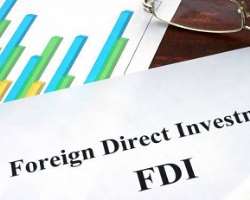Capital Inflow Hits Highest Level Since Q3 2014

Total capital importation into the Nigerian economy grew 35% y/y to US$8.5bn in Q1 2019, representing the highest quarterly inflow since Q3 2014 (US$12.2bn).
On a quarter on quarter basis, capital importation grew significantly by 216%, halting the three consecutive quarters of decline in foreign inflows. The remarkable improvement in capital importation during the quarter can be attributed to the successful conduct of the general elections, attractive yields on risk free instruments, positive trend in oil prices and stability in the exchange rate.
Additionally, the hold off on interest rate hikes by the U.S Federal Reserve during the quarter made carry trade attractive, hence bolstering capital flows into the economy.
In line with historical trends, the bulk of the capital inflows (84%) were directed towards Foreign Portfolio Investments (FPIs) while Foreign Direct Investment (FDIs) accounted for a meagre 3% (US$243.4mn). The breakdown of the FPIs revealed that 83% went into money market instruments (Treasury Bills and Commercial Papers) whereas equities and bonds accounted for 9% and 8% respectively.
In our view, the high level of flows in money market instruments reflects two things:
(a) foreign investors apathy towards Nigerian risk assets particularly equities; and
(b) foreign investors are not interested in extending the maturity profile of their investments by investing in the long end of the yield curve, hence, the concentration in short term money market instruments when compared to bonds with longer maturity profile.
Their cautious approach can be linked to their past experiences in liquidating their investments and repatriating their capital, following illiquidity in the FX market brought about by downturn in oil prices. Although Foreign Direct Investment (FDI) grew 40% q/q to US$243.4mn in Q1 2019, we consider it low when compared to the average quarterly inflow of US$569.3mn attracted in 2014 before the fall in oil prices.
In our opinion, we believe that the lack of business friendly policies to drive ease of conducting business in Nigeria remains the primary driver of low FDI into the country.
Source: Nairametrics
